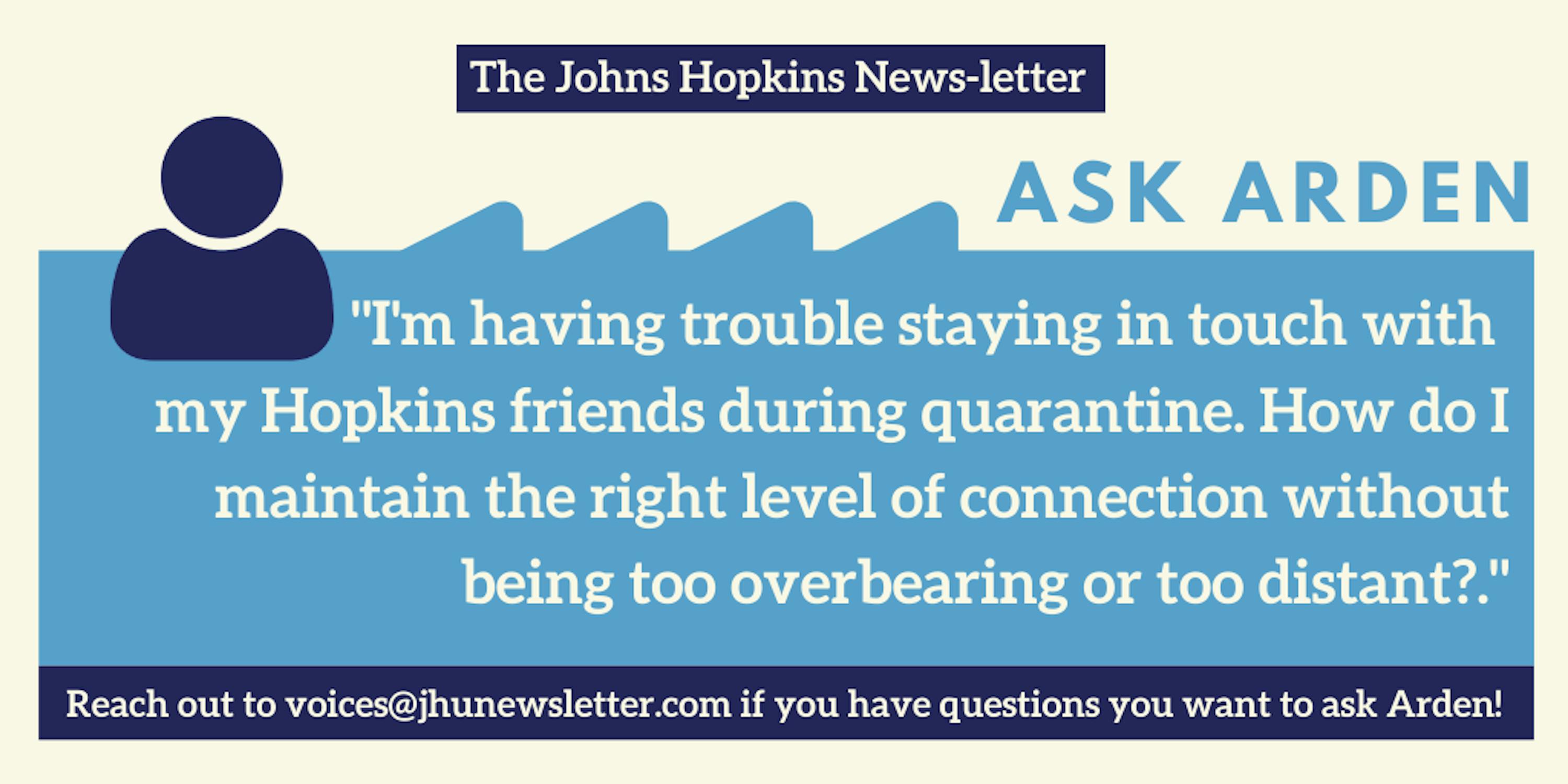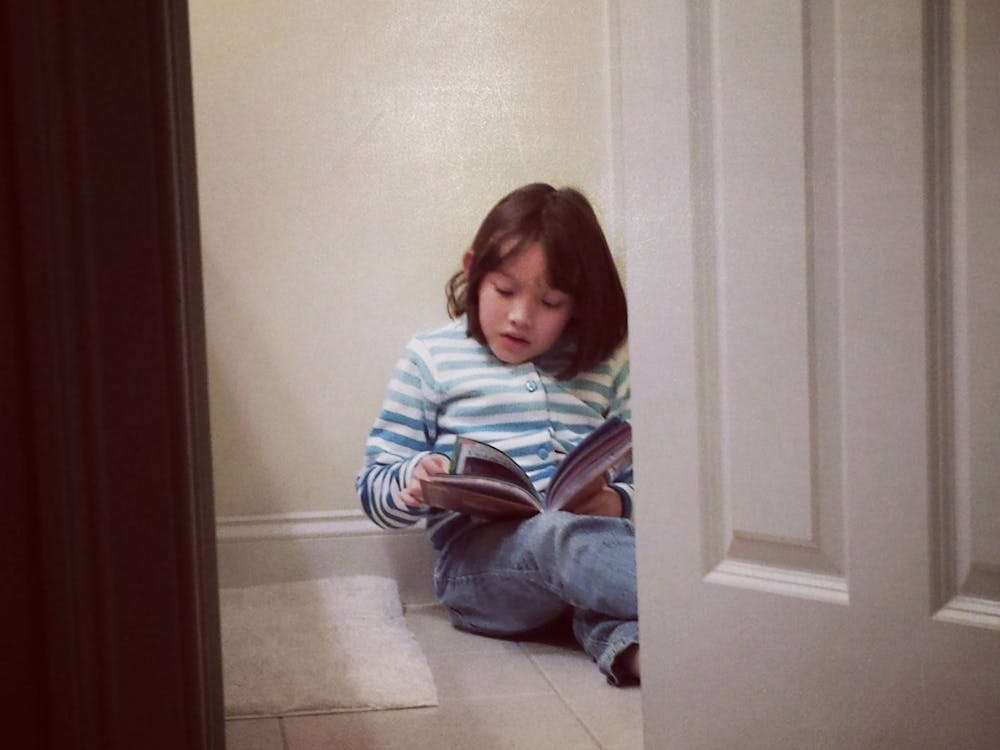
This is a question we are all facing today: How do we maintain the close friendships we’ve made during our time in college? It’s tough to stay in touch when you can’t see your friends face to face and are unsure of when you’ll be back together in person.
Let me start by acknowledging that it’s a tough time for all of us. There’s no set deadline for how long this distancing will last, we are fearful of our loved ones becoming ill and there are many uncertainties. Due to this added stress, we are all struggling: We are struggling to stay in touch, we are struggling to do our work and we are struggling with our new “normal.”
It’s important to remember that you are not defined by whatever you do to cope during these times. If you need to talk to your friends more during these stressful times, then that’s not overbearing. If you need to spend more reflective time alone, then that’s not being distant. You won’t be judged by your friends for how you personally handle a global pandemic. Hopefully remembering that there’s no expectations for handling yourself during these times helps to lift the burden a little bit.
In terms of maintaining the right level of connection, the frequency of communication with your friends depends on what you both need. Do you need to know that your friends are okay? Checking in about their safety and well-being every couple days or once a week is perfectly acceptable. If you need more support now (for any number of reasons, such as the stress of being home, the uncertainty about when this will end or the fear of a fatal virus) then it is completely valid to ask your friends for more support. This could mean checking in with a few of your best friends daily. Social distance doesn’t mean social isolation and maintaining communication with your friends is important, especially during this hard time.
If you are concerned about staying in touch, setting up a weekly or bi-weekly time to chat could be helpful. This way, you have something to look forward to during the in-between days, plus you have the security of knowing that your friends are still there for you and still care for you (which they do). Additionally, setting up a nightly check-in with one or two of your best friends could be helpful. Maybe you can each send each other three good things that happened that day, mention something you’re excited for the next day or maybe rank your daily mood every night.
Next, I want to talk about expectations. There are none. Staying in touch is tough right now but worrying about being overbearing or distant is unnecessary stress. Communicating with your friends should bring you joy and speaking to your friends can be really good for your well-being.
So I would advise you to listen to what you need right now and what your friends say they need right now. Whether that’s talking everyday or every week; there is no expectation for normal communication during this time. It really depends on what you and your friends want and need, your closeness and your own communication styles (introversion, extroversion, somewhere in between).
Finally, I want to remind you that, sadly, we’re all in the same boat here. We all want to stay in touch and, really, we’re all stressed about being more isolated than usual. Just as you may need more space or, alternatively, may need more communication during these stressful times, your friends may feel the same way. It’s important to be understanding during this time since your friends might be having the same anxieties as you.




